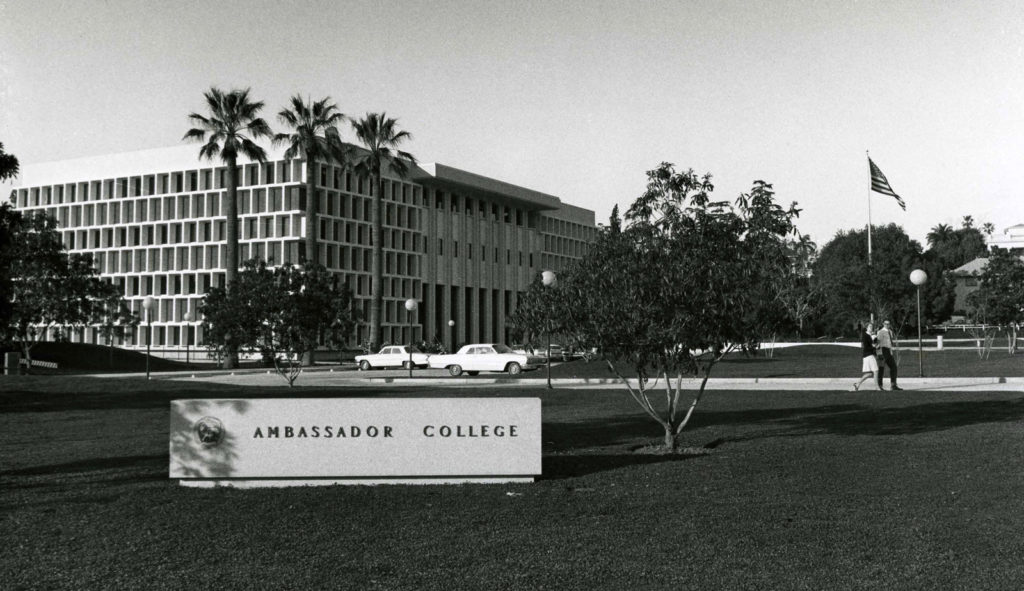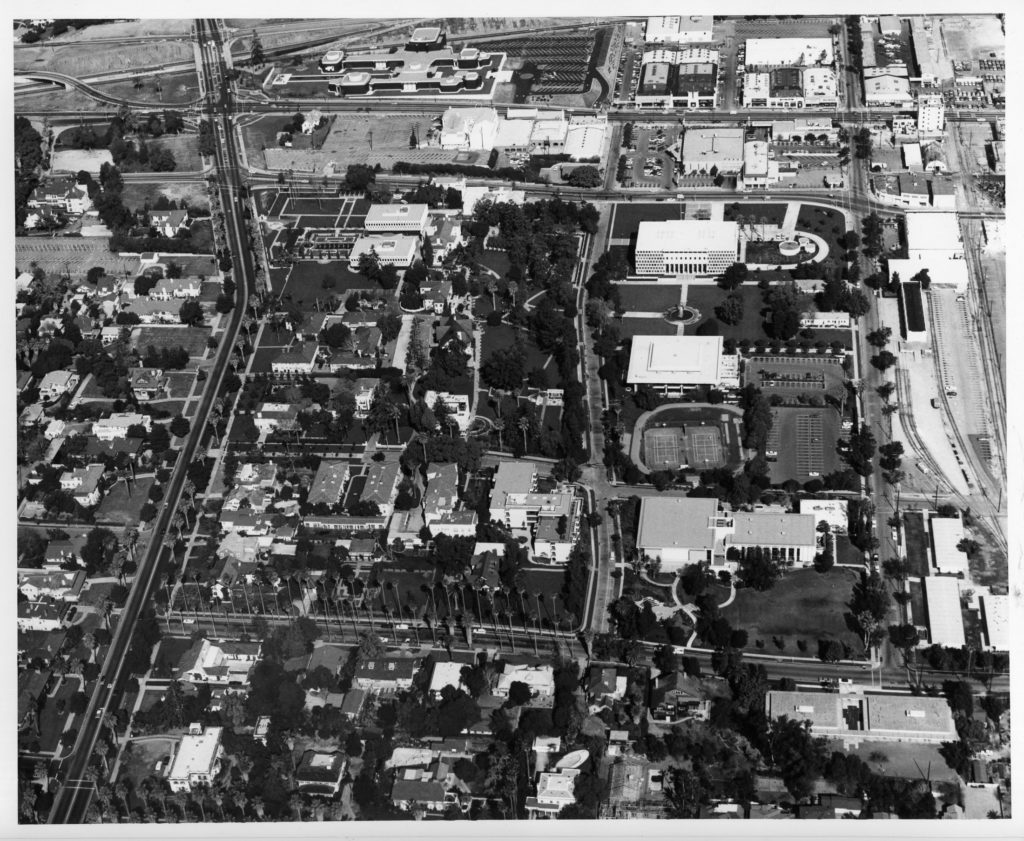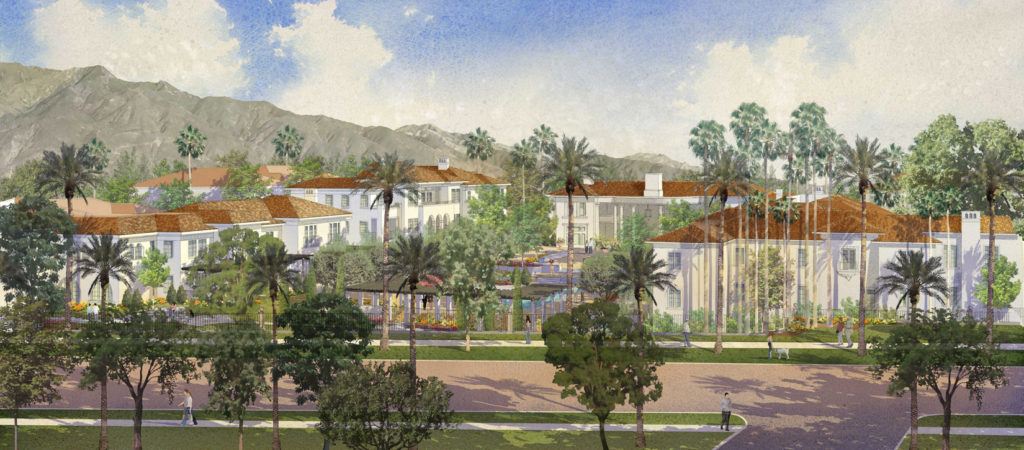1992 – WPRA interviewed Mike Snyder, assistant director of public affairs for the World Wide Church of God about selling its Ambassador College property for future development.
1999 – The WPRA urged residents to participate in the planning process for Legacy Partners which purchased the 50-acre former Ambassador College property from the World Wide Church of God for an estimated $59 million. It planned to build 1,943 units on the West campus and the East campus.

Click to enlarge.
Courtesy of the Archives at Pasadena Museum of History (A3-14)
2002 – WPRA categorically opposed the Legacy Project’s high density housing proposal, even when the developer reduced the projected units from 1,943 to 1,727.
Surveyed San Rafael area residents to identify their top concerns: overdevelopment in West Pasadena (i.e., the Legacy Project) and the growing traffic problem.
To help mitigate congestion around the proposed Ambassador Campus Development Plan (Legacy Project), the WPRA retained a traffic consultant to conduct an independent professional analysis of traffic impact out of concern that the proposal was so large it would increase the number housing units in the WPRA service area by 40%. Consequently, Legacy withdrew from the Project.
2003 – WPRA continued to address the Ambassador West Campus proposal by conducting another survey among residents of the WPRA service area and adopting a position about a reduced density and traffic congestion.
The WPRA adopted principles for the development of the Ambassador West Campus, stipulating: lower density, restricted height, compatibility and controlled traffic requirements.
2004 – Continued opposing the Worldwide Church of God campus development and announced that the church had sold five single-family homes on the Ambassador College West campus to private individuals (after the homes had been declared City Landmarks), sold the East campus to Sares-Regis Group for development, and submitted its own plan for the West campus, which included demolition of Ambassador Auditorium and construction of 696 housing units.
2005 – Opposed the Sares-Regis’ plan to construct 829 multi-family units and 30,000 square feet of retail/commercial development in the Ambassador College East campus.

Click to enlarge.
Courtesy of the Archives at Pasadena Museum of History (A3–23)
2006 – After reviewing the Draft Environmental Report, the WPRA continued to express concerns over the density of the Sares-Regis proposal to develop the Ambassador East and West campus projects, questioning the validity of the draft environmental impact statement and challenging the idea that the so-called “urban village” project was consistent with the General Plan and the Central District Specific Plan.
2007 – The WPRA continued to track the Ambassador West Project as developers changed, announcing that Standard Pacific Homes had pulled out of the Ambassador West project, purchased from the Worldwide Church of God by a consortium of investors headed by developer Dorn Platz.
2008 – Continued to track the Ambassador West Project as developers changed again. Announced that Dorn Platz had withdrawn from the Ambassador West project. Also noted that ACP Properties and Ambassador Acquisition Coalition Partners II had defaulted on a $44 million loan and gone into receivership.
2012 – The WPRA maintained its monitoring of the Ambassador West Project as developers changed once more – Arroyo Realty withdrew from the project, City Ventures started construction on first ten homes along Del Mar.

2013 – WPRA continued its oversight of the Ambassador Campus construction beyond the completion of the first ten units along Del Mar.
2014 – WPRA continued to consult with Ambassador Gardens East project manager as the design moved forward for lower campus and what would become the west campus named the “Grove” and “Jaimeson Place”.

